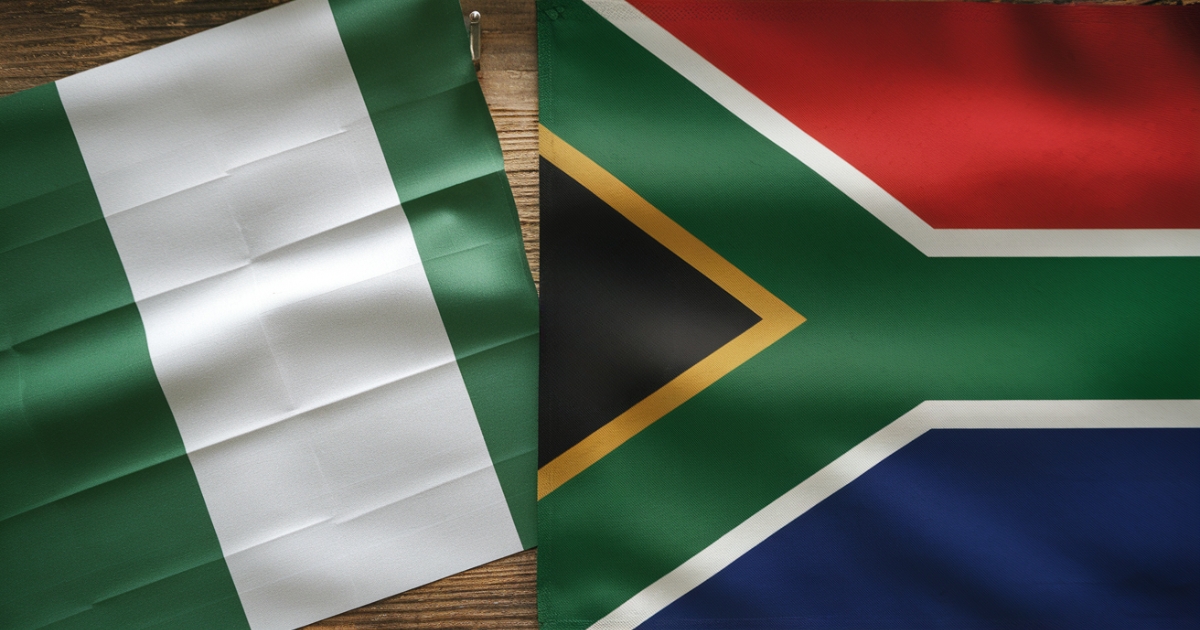
Nigeria and South Africa are two of Africa’s largest and most influential economies, each with distinct strengths and challenges. While Nigeria is known for its substantial population and rich natural resources, South Africa stands out for its developed infrastructure and diversified economy. Here’s how these two economic powerhouses compare in terms of growth, stability, and overall financial health:
Key Takeaways
- Economic Scale: Nigeria’s economy benefits from a large GDP and significant oil resources, whereas South Africa’s economy is more diversified, with robust manufacturing and services sectors.
- Growth and Stability: Nigeria experiences variable growth rates and high inflation, whereas South Africa enjoys more stable, albeit modest, growth with better-managed inflation.
- Poverty and Inequality: Both countries face challenges with poverty and income inequality. Nigeria’s issues are often linked to its reliance on oil and infrastructural shortcomings, while South Africa’s challenges are deeply rooted in historical inequalities from apartheid.
About Arcadia Finance
Secure your loan effortlessly with Arcadia Finance. Enjoy no application fees and select from 19 reputable lenders, each fully compliant with South Africa’s National Credit Regulator standards. Benefit from a streamlined process and trustworthy options tailored to your financial needs.
History of Nigeria’s and South Africa’s Economies
Nigeria and South Africa have both undergone substantial economic changes over the past century, influenced by their unique historical contexts.
Nigeria, endowed with significant oil reserves, gained independence from British colonial rule in 1960, marking the start of its economic journey as an independent nation. The discovery of oil in the Niger Delta in the 1950s propelled Nigeria onto the global oil stage, making it a central component of its economy. However, Nigeria’s economy has encountered difficulties, including political instability, corruption, and heavy reliance on oil exports, which have exposed it to fluctuations in global oil prices.
In contrast, South Africa’s economic history is deeply connected to its colonial past and the apartheid regime that lasted from 1948 to 1994. The discovery of gold and diamonds in the late 19th century established South Africa as a significant player in global mining, driving considerable industrial growth. However, the apartheid system created economic inequalities that marginalised the majority of the population. Since the end of apartheid in 1994, South Africa has transitioned to a democratic government, which has worked to address past economic disparities while integrating into the global economy.
Both countries continue to manage their intricate economic histories as they pursue sustainable growth and development.
As two of Africa’s most influential nations, Nigeria and South Africa have deep-rooted histories that date back centuries. Comparing their development through the lens of the Top 10 Oldest African Countries sheds light on the historical factors that continue to shape their economic and political landscapes.

Economic Indicators: GDP Comparison
| Economic Indicator | Nigeria | South Africa |
|---|---|---|
| GDP | $440 billion (R8.5 trillion) | $350 billion (R6.7 trillion) |
| Growth Rate (Past Decade) | Fluctuating, 5% in early 2010s, with some negative growth | Stable, averaging 1-2% annually |
| GDP Per Capita | $2,100 (R39,000) | $5,800 (R110,000) |
GDP Comparison
Nigeria and South Africa are frequently compared as the two largest economies in Africa. According to the most recent data, Nigeria’s Gross Domestic Product (GDP) is approximately $440 billion (R8.5 trillion), making it the largest economy on the continent. South Africa follows as the second-largest economy, with a GDP of around $350 billion (R6.7 trillion). Although Nigeria leads in terms of absolute GDP, South Africa’s economy is more diversified, with substantial contributions from the industrial and services sectors.
Growth Rates Over the Last Decade
In the past decade, Nigeria has experienced variable growth rates, largely driven by global oil prices. The country enjoyed rapid economic growth in the early 2010s, with annual rates exceeding 5%. However, a decline in oil prices around 2014 led to a significant slowdown, with some years of negative growth. In contrast, South Africa’s growth has been more stable but modest, averaging around 1-2% annually. The country’s growth has been constrained by structural issues, including high unemployment and energy supply challenges.
GDP Per Capita Comparison
When comparing GDP per capita, which provides a clearer measure of individual prosperity, South Africa surpasses Nigeria. South Africa’s GDP per capita is approximately $5,800 (R110,000), reflecting its higher level of economic development and wealth distribution. Nigeria’s GDP per capita, on the other hand, is around $2,100 (R39,000), highlighting the income and living standard disparities between the two countries. Despite Nigeria’s larger economy, its large population dilutes the per capita figures, indicating that, on average, individual wealth in South Africa is higher.
The strength of a country’s currency can significantly impact its economic performance. Discover how South Africa’s Rand strength and its implications have shaped the country’s financial landscape, making it a key player in the African economy.
Inflation and Unemployment Rates
Inflation Trends in Nigeria vs South Africa
Nigeria and South Africa have experienced different inflation trends over the years, reflecting their distinct economic environments. Nigeria has faced relatively high inflation rates, often in double digits, driven by factors such as currency depreciation, increases in fuel prices, and challenges in food supply. In recent years, Nigeria’s inflation has hovered around 16-18%, making it one of the highest in Africa.
In contrast, South Africa has managed to keep inflation more controlled, typically within the 3-6% range, aligning with the South African Reserve Bank’s target. However, South Africa has encountered pressures from rising fuel and food prices, as well as the effects of a weakened currency, which occasionally push inflation towards the upper end of the target range.
Unemployment Rates in Both Countries
Unemployment presents a significant challenge in both Nigeria and South Africa, though the rates and underlying causes differ. Nigeria’s unemployment rate has surged in recent years, reaching over 33% in 2021. This is exacerbated by the country’s young and rapidly growing population, coupled with slow job creation in the formal sector.
South Africa’s unemployment rate is also high, standing at around 34%, making it one of the highest globally. The persistent high unemployment rate in South Africa is attributed to structural issues in the economy, such as a mismatch between skills and available jobs, labour market rigidity, and slow economic growth. Both countries face the pressing challenge of addressing unemployment to achieve sustainable economic development.
South Africa’s economic might is often compared to Nigeria’s, with key provinces driving national wealth and development. Learning about the Richest Provinces in South Africa provides a deeper understanding of what gives the country its competitive economic edge.
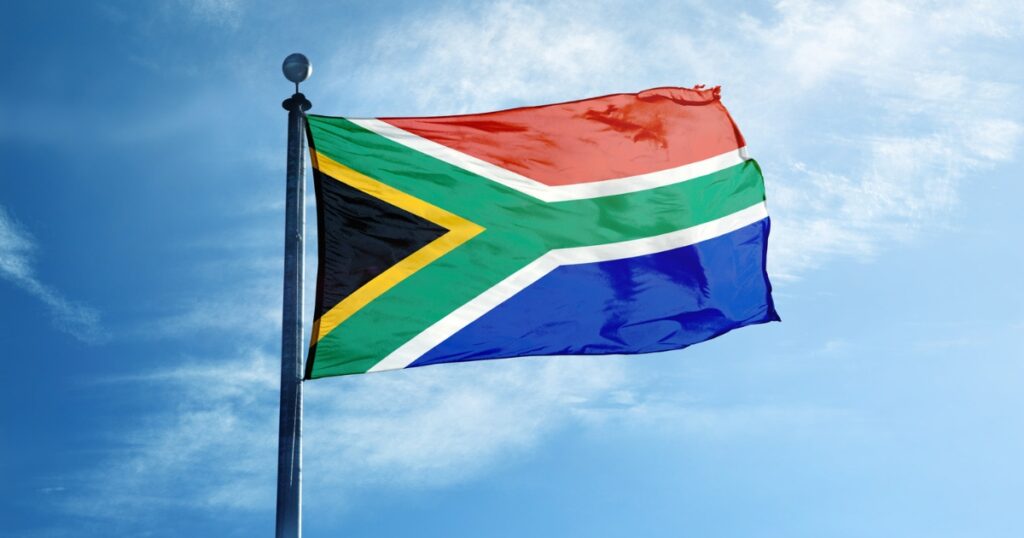
Exchange Rates and Currency Stability
| Indicator | Nigeria (Naira) | South Africa (Rand) |
|---|---|---|
| Performance and Stability | Consistent depreciation due to declining oil revenues, high inflation, and reliance on imports. Multiple exchange rates and government interventions have led to a parallel market. | Subject to depreciation, but more resilient due to global market integration and better investor sentiment. Stability influenced by commodity prices and political factors. |
| Impact of Currency Fluctuations on the Economy | Depreciation increases import costs, fuels inflation, and reduces purchasing power. External debt servicing becomes more expensive, straining the economy. | Fluctuations affect export competitiveness and import costs, particularly essential goods like fuel, leading to inflation. Currency instability can deter foreign investment. |
Naira vs Rand: Performance and Stability
The Naira and Rand have both faced significant challenges regarding their performance and stability, but their trajectories differ due to varying economic conditions in Nigeria and South Africa. The Nigerian Naira has experienced consistent depreciation over the years, primarily due to declining oil revenues, high inflation, and the country’s heavy reliance on imports. Despite various exchange rate windows and government interventions to manage the Naira’s value, these measures have often resulted in a parallel market with a higher exchange rate than the official one, complicating the currency’s stability.
In contrast, the South African Rand, while also subject to depreciation, has shown greater resilience compared to the Naira. The Rand’s value is influenced by factors such as investor sentiment, global commodity prices, and political stability within South Africa. Although the Rand has experienced significant depreciation at times, it remains more integrated with global financial markets, providing a degree of predictability and stability that the Naira lacks.
Impact of Currency Fluctuations on the Economy
Currency fluctuations have significant effects on both economies, although the impacts are more pronounced in Nigeria due to its reliance on imports and oil exports. The depreciation of the Naira results in higher import costs, which contributes to inflationary pressures and diminishes consumers’ purchasing power. This situation also exacerbates the cost of servicing external debt, placing additional strain on the Nigerian economy.
In South Africa, fluctuations in the Rand affect the economy through changes in export competitiveness and inflation. A weaker Rand can enhance export performance by making South African goods cheaper on the global market, but it also increases the cost of imports, particularly for essential goods like fuel, leading to inflation. Furthermore, currency instability can deter foreign investment, which is vital for economic growth in both countries.
While exploring the economic strengths and potential of South Africa in comparison with Nigeria, understanding the broader context of wealth across the continent can be enlightening. Discover which nations top the list by exploring our article on the richest countries in Africa and see how these economies stack up against each other.
Banking Sector Overview
Structure and Stability of the Banking Systems
Nigeria: The banking system in Nigeria has undergone substantial changes, particularly following reforms aimed at consolidating and strengthening the sector. It includes various types of financial institutions, such as commercial banks, merchant banks, and microfinance banks. The Central Bank of Nigeria (CBN) plays a key role in regulating and supervising these institutions to maintain stability. However, the sector faces challenges, including non-performing loans and issues with regulatory compliance.
South Africa: South Africa’s banking sector is well-established and highly regulated, with a strong emphasis on maintaining financial stability. The sector features major banks, smaller commercial banks, and various specialised financial institutions. The South African Reserve Bank (SARB) manages the regulatory framework, which is regarded as robust by international standards. Despite a generally stable banking environment, challenges such as economic slowdowns and the need for increased financial inclusion continue to persist.
Key Financial Institutions in Nigeria and South Africa
Nigeria: Major players in Nigeria’s banking sector include First Bank of Nigeria, Guaranty Trust Bank, Zenith Bank, and Access Bank. These institutions are prominent in terms of assets, customer base, and branch network across the country. They play a crucial role in the financial system by offering a range of services, including retail banking, corporate banking, and investment banking.
South Africa: In South Africa, key financial institutions include Standard Bank, First National Bank (FNB), Absa, and Nedbank. These banks are known for their extensive branch networks, digital services, and strong presence both domestically and across other African countries. They provide a comprehensive range of banking services to both individual and corporate clients, with their stability and performance being integral to the overall health of the South African economy.
| Country | Bank Name | Type | Market Position |
|---|---|---|---|
| Nigeria | First Bank of Nigeria | Commercial Bank | One of the oldest and largest banks in Nigeria |
| Nigeria | Guaranty Trust Bank (GTB) | Commercial Bank | Known for strong brand and customer loyalty |
| Nigeria | Zenith Bank | Commercial Bank | One of the largest by assets and profitability |
| Nigeria | Access Bank | Commercial Bank | Fast-growing, significant merger activity |
| South Africa | Standard Bank | Commercial Bank | Largest bank in Africa by assets |
| South Africa | First National Bank (FNB) | Commercial Bank | Innovator in digital banking, strong retail presence |
| South Africa | Absa | Commercial Bank | One of the big four banks, extensive branch network |
| South Africa | Nedbank | Commercial Bank | Major player with strong corporate banking presence |
Social and Economic Challenges
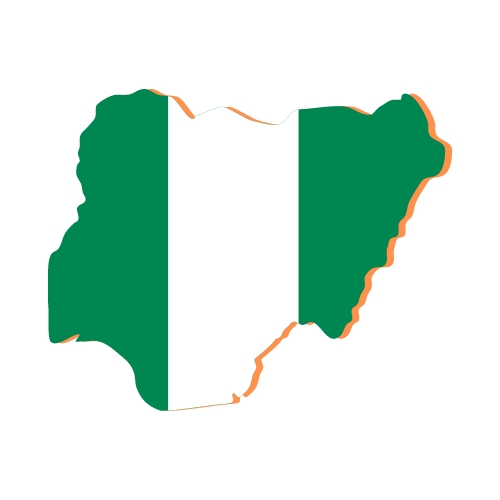
Poverty Rates in Nigeria
Nigeria has a high poverty rate, with a significant portion of its population living below the poverty line. The country faces challenges such as low income, unemployment, and inadequate access to basic services, which contribute to widespread poverty. Rural areas are particularly affected, where infrastructure and economic opportunities are limited.
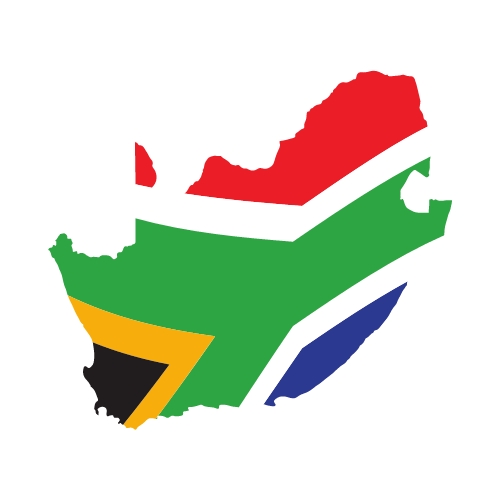
Poverty Rates in South Africa
South Africa also grapples with poverty, though it manifests differently. The legacy of apartheid has left deep socio-economic divides, creating a considerable gap between the wealthy and the poor. Although the country has made progress in improving living conditions, poverty remains prevalent, particularly in townships and rural areas.
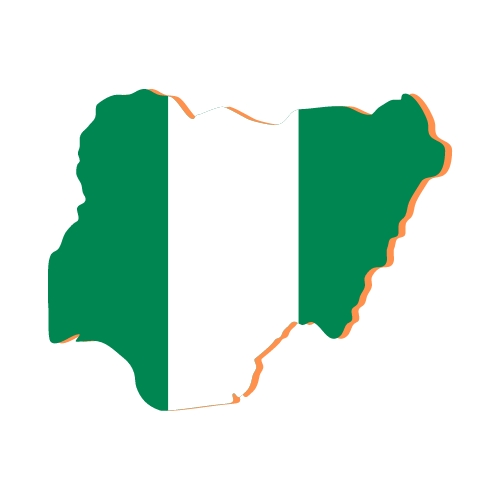
Income Inequality in Nigeria
Income inequality in Nigeria is influenced by factors such as unequal access to education, healthcare, and employment opportunities. The wealth gap between urban and rural populations is pronounced, and the concentration of wealth in certain regions further exacerbates inequality.

Income Inequality in South Africa
South Africa is one of the most unequal societies globally, with income inequality rooted in historical and structural factors. The disparity between the rich and poor is stark, with wealth largely concentrated in the hands of a few. Efforts to address this issue include social grants and economic empowerment initiatives, but significant challenges remain.
Power supply stability is crucial for economic development. Uncover how Eskom’s load shedding and its economic consequences have posed challenges to South Africa’s economy, and how the country is striving to overcome these obstacles to stay ahead of Nigeria.
Conclusion
The comparison between Nigeria and South Africa highlights that while both countries face substantial economic and social challenges, including poverty and income inequality, their circumstances and underlying factors differ significantly. Addressing these issues requires tailored approaches that take into account each country’s unique context, history, and economic structure. This underscores the ongoing need for effective strategies to promote inclusive growth and reduce disparities.
Frequently Asked Questions
Nigeria and South Africa are two of Africa’s largest economies, but their GDP figures reflect different economic realities. As of the latest data, Nigeria has a higher nominal GDP compared to South Africa, primarily due to its larger population and significant oil exports. However, South Africa’s GDP per capita is higher, indicating a higher average income level among its population.
In Nigeria, poverty is largely driven by factors such as inadequate infrastructure, limited access to education and healthcare, and economic instability. In South Africa, the legacy of apartheid has resulted in persistent socio-economic inequalities, with poverty being more concentrated in historically disadvantaged communities and informal settlements.
Nigeria has faced high inflation rates in recent years, driven by factors like currency devaluation and supply chain disruptions. Unemployment is also a significant issue, particularly among the youth. South Africa, while also experiencing high unemployment rates, generally has more stable inflation, although it faces challenges with economic growth and structural unemployment.
Nigeria’s economy is heavily influenced by its oil sector, which is a major source of revenue and export earnings. Agriculture and services also play key roles. South Africa’s economy is more diversified, with significant contributions from manufacturing, mining, finance, and services. The services sector, in particular, is a major driver of economic activity in South Africa.
Nigeria’s banking system is relatively underdeveloped compared to South Africa’s, which is more sophisticated and well-regulated. South Africa has a more stable and mature banking sector with a higher level of financial inclusion and advanced financial services. In contrast, Nigeria is working towards improving its banking infrastructure and expanding access to financial services, but challenges remain.
Fast, uncomplicated, and trustworthy loan comparisons
At Arcadia Finance, you can compare loan offers from multiple lenders with no obligation and free of charge. Get a clear overview of your options and choose the best deal for you.
Fill out our form today to easily compare interest rates from 19 banks and find the right loan for you.


